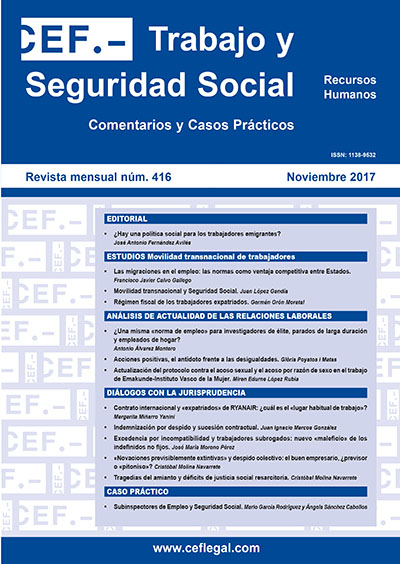Fiscal regime of expatriated workers
DOI:
https://doi.org/10.51302/rtss.2017.1756Keywords:
Personal Income Tax, tax residence, travel costs and daily allowances, exemption, cross-border workerAbstract
Tax residence pose important questions of proof. Once the tax residence has been determined, a employee who is resident in Spain and carries out activities abroad may not be taxed for the specific remuneration he receives above what he would be entitled to do in Spain. If these activities are also carried out abroad, but the employer is a non-resident, a tax exemption will be applied to the amount received up to an annual limit of € 60,100. Both cases requires a number of legal requirements. Spanish Tax Administration understands that the exempt income must necessarily come from an employement relationship. However, this paper concludes that the exemption also can be applied to those labor income obtained by work actually performed abroad, even if there is no employment relationship. It encourages the internationalization of human capital, and not merely of the companies. On the other hand, the income earned by no longer residents in Spain can exceptionally be taxed. This could happen in certain cases of teleworking from abroad.



















